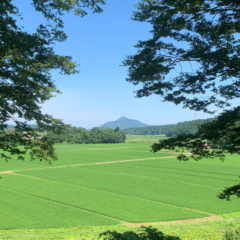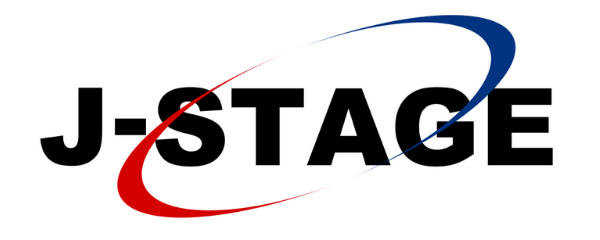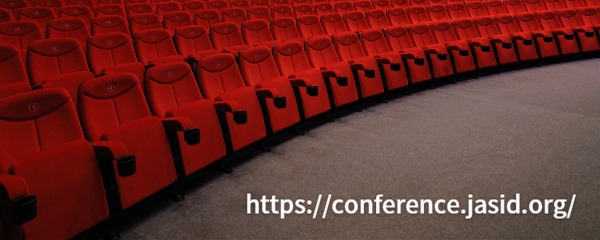Call for Applications:Associate/Assistant Professor in Economics, Tsuda University, Department of Policy Studies
The Department of Policy Studies, Tsuda University is currently inviting applications for a faculty position as follows. Details One Associate Professor or Assistant Professor (Tenured) Fields of specialization: Economics. Expected Starting Date: April 1st, 2026 Place of Employment: Mainly, at Sendagaya Campus (Shibuya, Tokyo) Teaching requirements: “Introduction to Economics” , “Intermediate Economics (Microeconomics and Macroeconomics)”and one more course, as w ell as Fresher, Sophomore, Junior, and Senior Seminars. The senior seminar includes providing advice and...
KED Seminar #26 at 3pm on October 26 [for Members and Generals]
Kyoto Environment and Development (KED) Seminar is taking place at 3pm this Thursday. We will welcome Takashi Kurosaki from Hitotsubashi University, and he will talk about the effects of the Covid-19 & Natural Agricultural Shocks on Preferences of Pakistani Farmers. Kyoto Environment and Development Seminar #26 Date &Time: October 26, 2023, Thursday, 15:00-16:30 (JST) Language: English Venue: Seminar Room E217 (GSA, Kyoto University) / Zoom Web Seminar Speaker: Takashi Kurosaki (Hitotsubashi University) If you...
“Resilience Seminar #41” Jan. 26 [for Members and Generals]
The Resilience seminar cordially invite you to join the following hybrid seminar. For zoom participation, prior registration is required here. https://kyoto-u-edu.zoom.us/meeting/register/tZcrf-iopj8vEt3qjR7X8JozVocIOWAF6ufP https://sites.google.com/view/aes-kyotonre/reselience-seminar Resilience Seminar #41 Date & Time: January 26, 2023, Thu 16:30-18:15 JST Language: English Venue: Seminar Room E220, Graduate School of Agriculture, Kyoto University and Zoom Web Seminar (hybrid) Speaker Masanori Matsuura, Institute of Developing Economies (IDE-JETRO) Title Weather Shocks, Livelihood Diversification, and Household Food Security: Empirical Evidence from Rural Bangladesh Abstract...
Kyoto Environment and Development Seminar #17 April 20 [for Members and Generals]
The Kyoto Environment and Development Seminar cordially invite you to join the hybrid seminar. Kyoto Environment and Development Seminar #19-20 Date & Time: May 25, 2023, Thursday, 15:00-18:15 (JST) Language: English Venue: Seminar Room E217 (GSA, Kyoto University) / Zoom Web Seminar Speaker: Takeshi Sakurai (University of Tokyo) and John Gibson (University of Waikato) Register in advance for this meeting: https://kyoto-u-edu.zoom.us/meeting/register/tZ0rduGtrTkoGt0W1uegmHccCJz7FR_cnegr After registering, you will receive a confirmation email containing information about joining the...
Kyoto Environment and Development Seminar #17 April 20 [for Members and Generals]
The Kyoto Environment and Development Seminar cordially invite you to join the hybrid seminar. Kyoto Environment and Development Seminar #19-20 Date & Time: May 25, 2023, Thursday, 15:00-18:15 (JST) Language: English Venue: Seminar Room E217 (GSA, Kyoto University) / Zoom Web Seminar Speaker: Takeshi Sakurai (University of Tokyo) and John Gibson (University of Waikato) Register in advance for this meeting: https://kyoto-u-edu.zoom.us/meeting/register/tZ0rduGtrTkoGt0W1uegmHccCJz7FR_cnegr After registering, you will receive a confirmation email containing information about joining the...
Kyoto Environment and Development Seminar #17 April 20 [for Members and Generals]
The Kyoto Environment and Development Seminar cordially invite you to join the hybrid seminar. Kyoto Environment and Development Seminar #17 Date & Time: April 20, 2023, Thursday, 11:00-12:15 (JST) Language: English Venue: Seminar Room E220 (GSA, Kyoto University) / Zoom Web Seminar Speaker: Christian Traeger (University of Oslo) Register in advance for this meeting: https://kyoto-u-edu.zoom.us/meeting/register/tZUpfuGoqzsrHtRJznPJMDHnZZC2n6d71ZbP After registering, you will receive a confirmation email containing information about joining the meeting. Title: SolACE — Solar Geoengineering...
Recruitment: PhD and Postdoc Positions in Barcelona, Spain
The Sustainability, Economics, and Ethics (SEE) Research Group at Universitat Ramon Llull in Barcelona, Spain, is offering the following positions: 1. PhD in Sustainable Development in China https://euraxess.ec.europa.eu/jobs/hosting/phd-sustainable-development-china 2. MSCA Postdoctoral Fellowship in Sustainability, Economics and Ethics https://euraxess.ec.europa.eu/jobs/hosting/bursary/grant-prepare-msca-postdoctoral-fellowship-sustainability-economics-and-ethics Please access the above links for further information on how to apply for each position. Contact Any questions can be addressed to see [at] iqs.url.edu(* replace [at] with@) https://www.see.iqs.url.edu/ PoPMeD-SuSDeV: http://popmed-susdev.eu/
Kyoto Environment and Development Seminar #16, on Feb. 16 [for Members and Generals]
Kyoto Environment and Development Seminar #16 Paddy Cultivation as an Origin of Cooperative Norms: Evidence from Natural and Artefactual Experiments Date & Time: February 16, 2023, Thursday, 16:45-18:15 (JST) Language: English Venue: Seminar Room E220 (GSA, Kyoto University) / Zoom Web Seminar Speaker: Kei Kajisa (Aoyama Gakuin University) Register in advance for this meeting: https://kyoto-u-edu.zoom.us/meeting/register/tZUrdeiuqDooH9ftkb2p0_Zl3QU25Djdwc6y After registering, you will receive a confirmation email containing information about joining the meeting. Abstract: It has been argued...


![社会課題解決のための開発とイノベーション [FY2022-]](https://jasid.org/wp/wp-content/uploads/2021/11/eye-Solving-Social-Problems-240x240.png)





